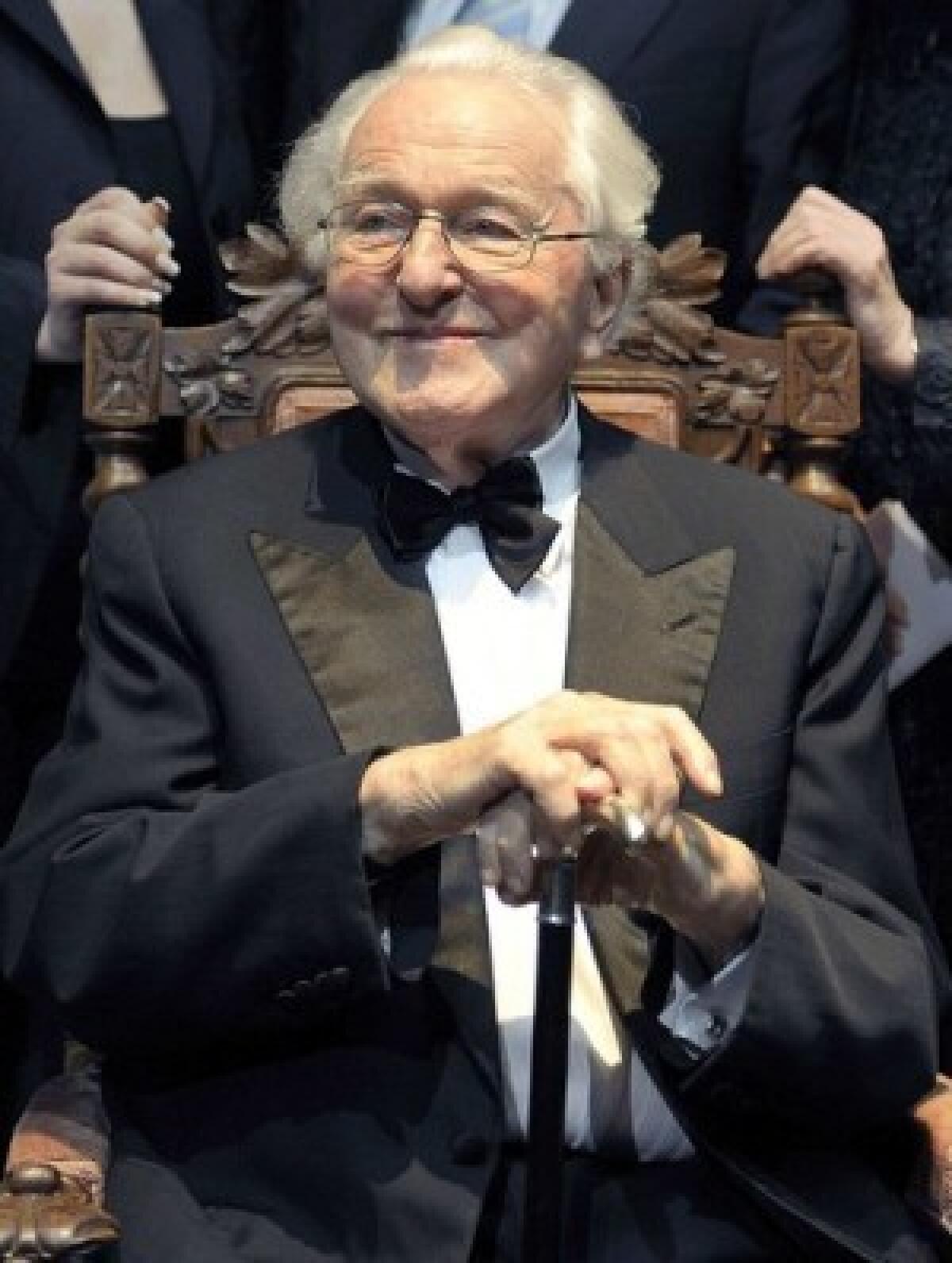Wolfgang Wagner dies at 90; longtime head of German festival dedicated to his grandfather’s works

- Share via
Wolfgang Wagner, the grandson of German composer Richard Wagner and the leader of the Bayreuth opera festival in Germany for more than half a century, has died. He was 90.
Wagner died Sunday, the festival announced in a brief statement on its website. It did not elaborate.
“Wolfgang Wagner dedicated his whole life to the legacy of his grandfather,” the festival said.
Wagner stepped down after the 2008 festival following a long power struggle in which the patriarch resisted efforts to dislodge him.
He had led the festival dedicated to his grandfather’s works since 1951, first with his brother, Wieland, and then as sole director -- with a lifetime contract.
His insistence on serving out that contract led in his later years to clashes with officials who oversee the event, held every summer in the Bavarian town of Bayreuth in the small brick theater built by Richard Wagner in the 1870s.
It also triggered a spat within the Wagner family that itself was worthy of opera.
For years, Wolfgang Wagner insisted that only his second wife, Gudrun, could replace him, although German government officials and others overseeing the festival refused to accept her.
By the time Gudrun died in November 2007, Wagner was insisting that only the couple’s daughter, Katharina, could fill his shoes -- putting him at odds with two other Wagners who also sought the job.
Wolfgang finally agreed to step aside in 2008; Katharina and Wolfgang’s long-estranged daughter from his first marriage, Eva Wagner-Pasquier, teamed up to defeat a rival bid from their cousin. They took charge last year.
Born on Aug. 30, 1919, in Bayreuth, Wagner studied the trumpet and French horn before being sent to fight on the eastern front early in World War II. In 1939, he was severely wounded and sent back to Berlin.
He and his brother took charge of the festival in 1951, reviving the event that had been stopped by the war.
They worked to restore its tarnished name, with Wolfgang concentrating on organization and finances. He founded the Society of Friends of Bayreuth to accept donations and won government support.
After Wieland’s death from cancer in 1966, Wolfgang took over as sole director.
In addition to increasing the funding and establishing a separate foundation to oversee the composer’s library, he invited directors from abroad to direct individual operas and staged his own productions.
The Wagner family’s close connections to the Nazis and their ideology were a recurring subject during Wolfgang’s tenure.
In 1997 his estranged son, Gottfried, published a book on the issue accusing his father of failing to renounce the virulent anti-Semitism of Wolfgang’s mother, Winifred, a glowing admirer of Adolf Hitler who headed the Bayreuth festival under the Nazis in the 1930s. During her reign, Hitler not only helped fund the festival but was allowed to meddle in artistic decisions.
Wolfgang Wagner denounced the book as “one-sided” and “primitive” and banned Gottfried -- one of two children from his marriage to his first wife, Ellen -- from the family home.
Wagner is survived by his three children.
More to Read
Start your day right
Sign up for Essential California for the L.A. Times biggest news, features and recommendations in your inbox six days a week.
You may occasionally receive promotional content from the Los Angeles Times.






